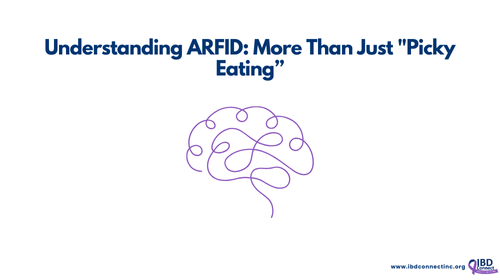Understanding ARFID: More Than Just "Picky Eating"
Understanding ARFID: More Than Just "Picky Eating"


Research different options to find the right pediatrician
Amet mauris lectus a facilisi elementum ornare id sed sed aliquet dolor elementum magnis quisque id ultrices viverra cursus nunc odio in egestas consectetur cras consequat sodales netus pretium feugiat nulla semper senectus bibendum ornare sit adipiscing ut atid viverra donec nunc, donec pulvinar enim ac habitasse fermentum amet praesent atac elementum id sed nibh diam ultrices nibh enim volutpat varius et est sed vestibulum neque.
- Neque sodales ut etiam sit amet nisl purus non tellus orci ac auctor
- Adipiscing elit ut aliquam purus sit amet viverra suspendisse potent
- Mauris commodo quis imperdiet massa tincidunt nunc pulvinar
- Excepteur sint occaecat cupidatat non proident sunt in culpa qui officia
Check credentials and licensing
Lorem ipsum dolor sit amet, consectetur adipiscing elit, sed do eiusmod tempor incididunt ut labore et dolore magna aliqua. Ut enim ad minim veniam, quis nostrud exercitation ullamco laboris nisi ut aliquip ex ea commodo consequat.
Vitae congue eu consequat ac felis placerat vestibulum lectus mauris ultrices cursus sit amet dictum sit amet justo donec enim diam porttitor lacus luctus accumsan tortor posuere praesent tristique magna sit amet purus gravida quis blandit turpis.

Ask friends and family for recommendations
Ornare sit adipiscing ut atid viverra donec nunc, donec pulvinar enim ac habitasse fermentum amet nunc praesent atac elementum id sed nibh diam ultrices nibh enim volutpat varius et est sed vestibulum neque.
Amet mauris lectus a facilisi elementum ornare id sed sed aliquet dolor elementum magnis quisque id ultrices viverra cursus nunc odio in egestas consectetur cras consequat sodales netus pretium feugiat nulla semper senectus bibendum.
“Duis aute irure dolor in reprehenderit in voluptate velit esse cillum dolore eu fugiat nulla pariatur excepteur sint occaecat cupidatat non proident, sunt in culpa qui offi.”
Look for experience in treating your child's age
Duis aute irure dolor in reprehenderit in voluptate velit esse cillum dolore eu fugiat nulla pariatur. Excepteur sint occaecat cupidatat non proident, sunt in culpa qui officia deserunt mollit anim id est laborum.
- Neque sodales ut etiam sit amet nisl purus non tellus orci ac auctor
- Adipiscing elit ut aliquam purus sit amet viverra suspendisse potenti
- Mauris commodo quis imperdiet massa tincidunt nunc pulvinar
- Adipiscing elit ut aliquam purus sit amet viverra suspendisse potenti
Consider location and availability
Duis aute irure dolor in reprehenderit in voluptate velit esse cillum dolore eu fugiat nulla pariatur excepteur sint occaecat cupidatat non proident, sunt in culpa qui officia deserunt mollit anim id est laborum.
Lorem ipsum dolor sit amet, consectetur adipiscing elit, sed do eiusmod tempor incididunt ut labore et dolore magna aliqua. Ut enim ad minim veniam, quis nostrud exercitation ullamco laboris nisi ut aliquip ex ea commodo consequat.
Understanding ARFID: More Than Just "Picky Eating"
Feeding struggles are common in children, but when food avoidance becomes extreme and interferes with growth, nutrition, or overall health, it may be something more serious. Avoidant/Restrictive Food Intake Disorder (ARFID) is a recognized eating disorder that goes beyond typical picky eating. Unlike typical picky eating phases that most children outgrow, ARFID can significantly disrupt a child’s physical health, growth, and emotional well-being. Research shows that children with chronic illnesses, such as inflammatory bowel disease (IBD), face a higher risk of developing ARFID, as food fears and avoidance often stem from painful experiences with eating or medically necessary dietary restrictions. Recognizing ARFID early is critical, as timely intervention can prevent long-term nutritional complications and help children build a healthier relationship with food. In this blog post, we’ll define what ARFID is, explore its relationship with IBD, highlight warning signs to watch for, and list further resources for support.
What is ARFID?
Avoidant/Restrictive Food Intake Disorder (ARFID) is an eating disorder marked by a persistent disturbance in eating that results in inadequate nutrition or difficulty functioning in daily life. Unlike anorexia nervosa or bulimia nervosa, ARFID is not driven by concerns about weight or body shape. Instead, food is avoided because of sensory issues, lack of appetite, or fear of negative outcomes such as choking, vomiting, or stomach pain.
According to the Diagnostic and Statistical Manual of Mental Disorders, Fifth Edition (DSM-5), the diagnosis of ARFID requires:
- Feeding or eating disturbance (e.g., lack of interest in food, avoidance based on sensory characteristics, or fear of aversive consequences) leading to persistent failure to meet appropriate nutritional or energy needs.
This is associated with at least one of the following:
- Significant weight loss (or failure to achieve expected growth in children).
- Significant nutritional deficiency.
- Dependence on enteral feeding or oral nutritional supplements.
- Marked interference with psychosocial functioning.
- The disturbance is not better explained by lack of available food or a culturally sanctioned practice (such as fasting).
- The disturbance does not occur exclusively during anorexia nervosa or bulimia nervosa, and there is no evidence of body image disturbance.
- The eating disturbance is not attributable to another medical condition or mental disorder. If it does occur in the context of another condition (such as IBD), the severity of the disturbance must exceed what would normally be expected.1
How is ARFID Different From Picky Eating?
Many children go through phases of picky eating, especially in toddlerhood. ARFID, however, is more severe. While a picky eater might dislike vegetables but still eat a variety of other foods, a child with ARFID may accept only a handful of “safe foods” and refuse all others. This rigidity can lead to nutritional deficiencies, stunted growth, anxiety at mealtimes, and even social withdrawal if eating with peers becomes too stressful or embarrassing. In children with IBD, ARFID can sometimes be misinterpreted as “just being cautious with food.” But if avoidance persists after medical flare-ups are under control, or extends beyond medically necessary dietary restrictions, ARFID should definitely be considered. Another key feature of ARFID is that it doesn’t simply go away with time. Whereas most children outgrow typical picky eating, children with ARFID do not. The challenges will continue unless appropriate treatment is introduced.

ARFID and IBD: A Complex Overlap
For children living with inflammatory bowel disease (IBD), food often becomes complicated. Pain, nausea, or fear of triggering symptoms can lead to food avoidance. Over time, these patterns may evolve into ARFID. This overlap is important when considering the DSM-5 diagnostic criteria for ARFID. Criterion #4 states that the eating disturbance must not be solely attributable to another medical condition. In the case of IBD, food avoidance is sometimes expected, especially during flares, or when a physician has recommended dietary modifications. However, ARFID may be considered when:
- The level of restriction goes beyond what is medically necessary.
- The child continues to avoid foods even when their IBD is under control.
- The avoidance causes nutritional deficiencies, growth delays, or major disruptions in social and emotional life.
Recognizing this nuance is critical. Families and providers must work together to distinguish between necessary medical dietary restrictions and the psychological avoidance patterns of ARFID. Addressing both IBD and ARFID ensures that children get not only the medical treatment they need, but also the nutritional and emotional support required for healthy growth and development.
Another way parents and caregivers can distinguish ARFID from typical picky eating or medically appropriate food restriction is by considering the motivation behind the avoidance. For example, does your child only stick to a handful of “safe” foods and show extreme distress or refusal when encouraged to try something new? If so, this may be a red flag for ARFID rather than simple food preference.
Prevalence
This is a challenging question to answer, as estimates vary depending on study design, screening tools, and populations examined since the DSM-5 introduced ARFID as a diagnosis in 2013. In the general population, prevalence rates have been reported anywhere from 0.3% to 15.5% 2, with differences influenced by age groups (children vs. adults) and whether participants were drawn from clinical settings, such as feeding clinics, versus community samples. When looking specifically at patients with inflammatory bowel disease (IBD), prevalence rates are also wide-ranging. One study found that 16.3% of patients with inactive IBD met diagnostic criteria for ARFID.3 While the exact numbers may differ, what remains consistent across the literature is that ARFID occurs more frequently in individuals with IBD than in the general population.
What Are the Complications of ARFID?
As previously stated, ARFID does not get better with time. It can lead to serious complications if left untreated. Here are just a handful of complications that ARFID can cause:
- Malnutrition
- Dehydration
- Electrolyte imbalance
- Anemia
- Low blood pressure
- Osteoporosis
- Cardiac arrest
- Delayed puberty
- Growth problems4
Signs to Watch For
You may want to talk to your child’s healthcare provider if you notice:
- Extreme pickiness or refusal of entire food groups.
- Anxiety or distress when presented with new foods.
- A very limited diet that causes weight loss or poor growth.
- Frequent complaints of fear (choking, vomiting, stomach pain) tied to eating.
- Avoidance of social activities involving food.
- Signs of other mental health disorders (depression, anxiety)
- Physical signs of malnutrition (these might be difficult to distinguish from symptoms of IBD)
How is ARFID Treated?
ARFID treatment is typically collaborative, involving:
- Pediatricians and gastroenterologists to monitor nutrition and growth., as well as to prescribe medication and implement interventions to control flare.
- Dietitians to ensure safe, gradual food exposure and nutritional adequacy.
- Therapists (CBT or exposure therapy) to help reduce food anxiety and expand food acceptance.
- Family support to encourage progress and reduce stress at mealtimes.
For children with IBD, care teams must work together to balance medical dietary needs with behavioral therapy for ARFID. Of course, treatment should also be individualized, tailored to each child’s unique circumstances, medical history, level of support, etc.
Final Thoughts
Avoidant/Restrictive Food Intake Disorder is more than fussiness at the dinner table and picky eating. ARFID is a serious condition that can affect a child’s health, growth, and emotional well-being. For families managing IBD, awareness of ARFID is especially important, since food fears may be tied to painful experiences with illness. With early recognition and multidisciplinary care, children with ARFID can learn to build a healthier, less fearful relationship with food. If you suspect your child is struggling with ARFID, please contact your child’s medical team as soon as possible. Additionally, feel free to check out the resources below. As always, stay strong IBD Warrior families!
Helpful Resources
Medical Disclaimer
Please take note that this page is not intended to be a substitute for a professional medical opinion and should not be used to diagnose or treat you or your child. Always consult your child’s healthcare provider if you have any concerns or questions about your child’s health. If you would like to discuss this topic or similar topics like this further with other parents/guardians of children with IBD, please feel free to join one of IBD Connect’s support group meetings. We have several different support group options, both in-person and virtually, and we always welcome newcomers!
References
- Substance Abuse and Mental Health Services Administration. DSM-5 Changes: Implications for Child Serious Emotional Disturbance [Internet]. Rockville (MD): Substance Abuse and Mental Health Services Administration (US); 2016 Jun. Table 22, DSM-IV to DSM-5 Avoidant/Restrictive Food Intake Disorder Comparison. Available from: https://www.ncbi.nlm.nih.gov/books/NBK519712/table/ch3.t18/
- D’Adamo, L., Smolar, L., Balantekin, K.N., et al. (2023). Prevalence, characteristics, and correlates of probable avoidant/restrictive food intake disorder among adult respondents to the National Eating Disorders Association online screen: A cross-sectional study. Journal of Eating Disorders, 11, 214. https://doi.org/10.1186/s40337-023-00939-0
- Grossberg, L. B., Mishra, K., Rabinowitz, L. G., Mecsas-Faxon, B., Mandal, N., Susheela, A., Naik, A., Patel, K., Gallotto, M., Greenwood, T., Burton Murray, H., Papamichael, K., Cheifetz, A. S., Kinsinger, S. W., & Ballou, S. (2025). A Multicenter Study to Assess Avoidant/Restrictive Food Intake Disorder in Patients with Inflammatory Bowel Disease. Inflammatory bowel diseases, izaf016. Advance online publication. https://doi.org/10.1093/ibd/izaf016
What is Arfid (avoidant/restrictive food intake disorder)?. Cleveland Clinic. (2025, August 29). https://my.clevelandclinic.org/health/diseases/24869-arfid-avoidant-restrictive-food-intake-disorder
Subscribe to our newsletter
Valuable tips, inspiring stories, and updates on events and programs. It’s all value, no spam—just the information you need to stay informed and empowered.

.png)

